Worksheet Solutions: Calendar - 1 | Mental Maths - Class 1 PDF Download
| Table of contents |

|
| i) Multiple Choice Questions (MCQs) |

|
| ii) Fill in the table with the correct days of week. |

|
| iii) Fill in the Blanks |

|
| iv) True/False |

|
| v) Short Answer Questions |

|
| vi) Fun Activity |

|

i) Multiple Choice Questions (MCQs)
Q1. What is the first day of the week?(a) Thursday
(b) Tuesday
(c) Sunday
(d) Friday
Ans: Sunday
Sol: Sunday is the first day of the week.
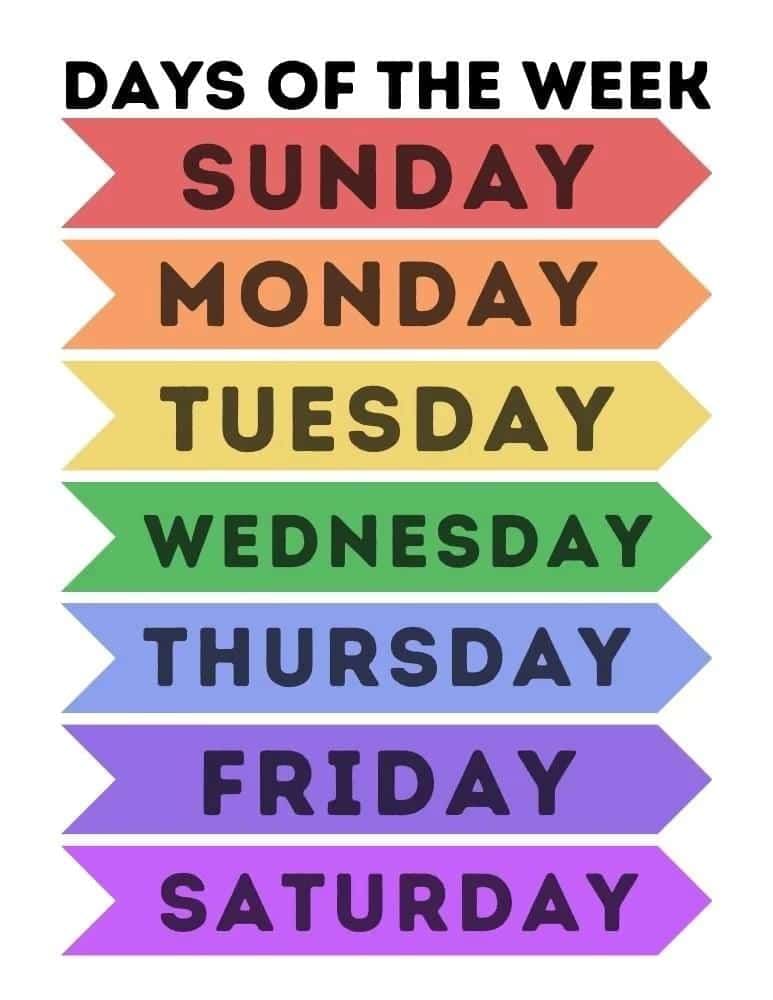
Q2. Which day comes after Monday?
(a) Sunday
(b) Friday
(c) Tuesday
(d) Wednesday
Ans: Tuesday
Sol: Tuesday comes right after Monday in the week.
Q3. How many months are there in a year?
(a) 10
(b) 12
(c) 14
(d) 11
Ans: 12
Sol: There are 12 months in a year.
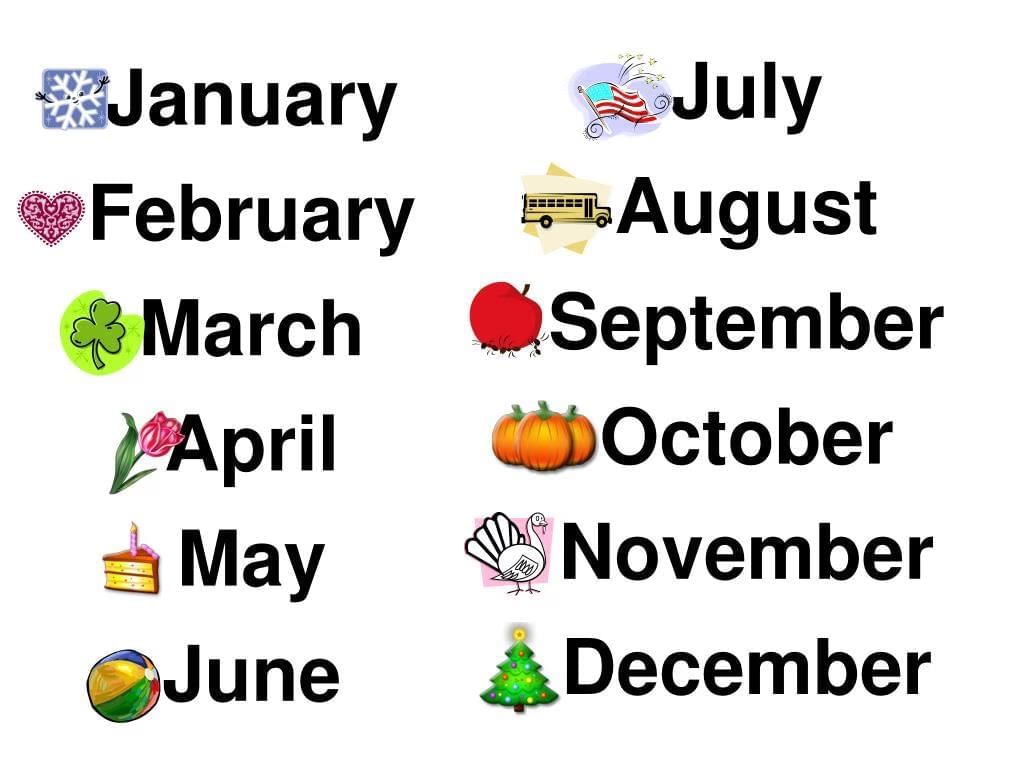
Q4. Which month comes after March?
(a) February
(b) April
(c) May
(d) June
Ans: April
Sol: April comes right after March.

ii) Fill in the table with the correct days of week.
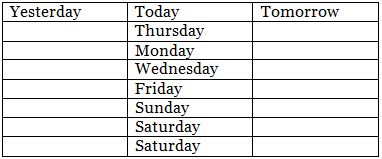
Ans: 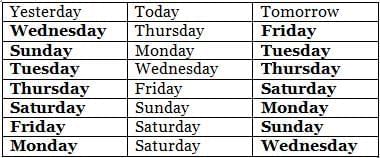
iii) Fill in the Blanks
1. The last day of the week is ___________.
Ans: Saturday
Saturday is the last day of the week.
2. The day before Wednesday is ___________.
Ans: Tuesday
The day before Wednesday is Tuesday.
3. Tomorrow will be ___________.
Ans: (Depends on the day the worksheet is being answered)
For example: If today is Monday, the answer would be "Tuesday."
Tomorrow always follows the current day.
4. The month that comes after September is ____.
Ans: October
The month that comes after September is October.
iv) True/False
1. There are 9 months in a year.Ans: False
There are 12 months in a year, not 9.
2. July comes after June.
Ans: True
July comes right after June in the calendar.
3. December is the last month of the year.
Ans: True
December is the last month of the year.
4. A week has 10 days.
Ans: False
A week has 7 days.
v) Short Answer Questions
1. What is the name of the month that comes before October?
Ans: September comes right before October.
2. Which day do you like the most and why?
Ans: (This answer will vary from student to student. An example answer could be: "I like Sunday because I get to play all day!"). Students should give their personal favorite day of the week and the reason.
3. What is the date today?
Ans: (Depends on the date the worksheet is answered, for example: "Today is 25th June.") Students will fill in the current date based on when they are completing the worksheet.
4. Which is the first month of the year?
Ans: The first month of the year is January.
vi) Fun Activity
1. Draw a sun on a sunny day and a cloud on a rainy day.
Ans: Students will draw a sun for a bright day and a cloud with raindrops for a rainy day.

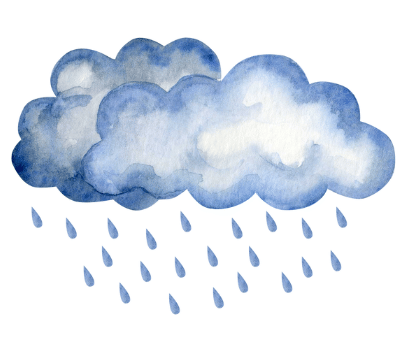
2. Draw a clock showing the time you wake up in the morning.
Ans: Students will draw a clock with the time they usually wake up, e.g., 7:00 AM.
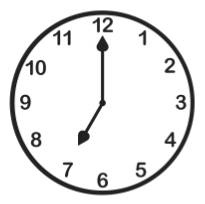
3. Complete the sentence:
My favourite day of the week is Saturday because I do not have school and can play with my friends.
4. Who I am:
I come after July but before September.
Ans: August
You can access the solutions to this worksheet here.
|
40 videos|158 docs|19 tests
|
FAQs on Worksheet Solutions: Calendar - 1 - Mental Maths - Class 1
| 1. What are the days of the week and how are they commonly used in scheduling? |  |
| 2. How do the months of the year relate to the seasons? |  |
| 3. What is the significance of understanding dates in daily life? |  |
| 4. How are leap years determined, and why are they important? |  |
| 5. What activities can help enhance understanding of the calendar among children? |  |





















